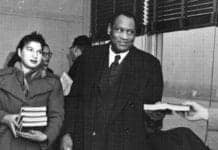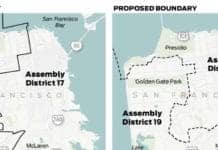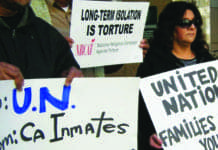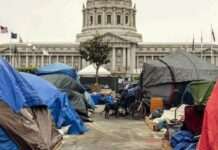
by Jade K. Lee, California Black Media
The California Census Office believes there will be higher participation among African Americans during next year’s census if “trusted messengers” help get the word out and go door-to-door conducting pre-surveys, educating people and helping some fill questionnaires in Black communities.
Preparing for the 2020 Census, the U.S. Census Bureau is in the process of hiring about 500,000 workers across the country for the national count that will cost the federal government a little over $15 billion.
Tens of thousands of temporary federal employees will join the effort in California to assist with collecting data and reaching out to citizens on the internet, by phone and in person. Pay is based on location and position. In larger cities like Sacramento, Los Angeles and San Francisco, salaries range anywhere from $17.00 to $30.00 per hour for field representative positions.
All applicants must be U.S. citizens, although special exemptions have been made in the past for people with specific language skills.
“This is really an opportunity for Black Californians to help make sure there isn’t a wrong assessment of our state’s population,” said Regina Wilson, president of California Black Media. Her organization recently released a report titled “Counting Black California,” designed to help media publications across the state micro-target hard-to-count populations and expand the reach of their public education efforts around the census.
“Census counts have real impact on people’s lives,” said Wilson, “from our representation in Congress to the amount of federal aid a neighborhood receives for programs like Head Start.”
The national Census, conducted every 10 years, is mandated by the United States Constitution. It records critical demographic information about residents of every state in the country and it is used to determine political representation in the U.S. Congress, as well as provide important insights into the economy.
Some of the data the bureau collects are obtained using household surveys. The exercise produces statistics that describe populations in detail by characteristics such as age, education, housing and income.
For the first time in history next year, the U.S. Census Bureau is requesting that the majority of participants provide the answers to their Census questionnaires online.
A digital census could pose specific challenges to accurately counting African Americans. Even though smartphones and other mobile devices have helped to close the gap between Whites and Blacks with access to the internet, only about 66 percent of African Americans own a computer or laptop at home, according to a report by the Pew Research Center. Also, significant numbers of African Americans still do not have wireless or broadband internet connections at home.
More than one-third of California’s 2.2 million Black population lives in the Los Angeles area, where there is a large number of tracts the U.S. Census Bureau designates as “hard-to-count” because of inaccurate population totals in the past.
For the 2020 Census, California is investing near $180 million statewide through various programs in an effort to make certain that residents of the state are informed about all aspects of the national survey.
“This is really an opportunity for Black Californians to help make sure there isn’t a wrong assessment of our state’s population,” said Regina Wilson, president of California Black Media.
“California is proud to be dedicating targeted funding and resources toward outreach to hard-to-count demographic populations across the state,” said Ditas Katague, director of California Complete Count – Census 2020.
Since the inception of the Census, Black communities have been routinely undercounted. The reasons for the inaccurate count in the last decennial, census researchers say, included the large number of Blacks who move frequently; multigenerational families living in the same home; homes with multiple families sometimes living in different units at the same address that census workers may not recognize; teen single mothers; homelessness; high rates of incarceration; and a general reluctance to participate based on inadequate information.
While the margins of uncounted Blacks seem to decrease after every 10 years, the last decennial in 2010 still undercounted the Black population by close to 800,000 people.
Inaccurate counts can also impact numbers policymakers depend on to make other important decisions. For example, at the end of December 2018, the African-American unemployment rate was 6.6 percent. One component used to calculate the unemployment rate is the Current Population Survey (CPS). The CPS consists of 60,000 households throughout the 50 states and the District of Columbia. Household samples used in the CPS are constructed from census files.
According to Phung Nguyen in his article “Biased Statistics and African Americans,” despite efforts to calculate an accurate unemployment rate, Blacks are still being undercounted in the CPS. Housing units that are not counted by the Census are likely to be overlooked by the CPS and vice versa. Meaning, if the Black community has historically been undercounted in the census, then the unemployment rates reported for African Americans over the years have been consistently inaccurate.
Aware that it receives more than $350 billion annually in federal aid, has the highest population in the country and the highest number of representatives in Congress, California is doing all it can to be prepared for the 2020 Census.
“Our state’s future will be shaped by an accurate assessment of our population,” said Eleni Kounalakis, lieutenant governor of California. “It has never been more important to ensure that all the people of California are counted.”
More detailed information about Census job opportunities can be found https://www.census.gov/fieldjobs.
Journalist Jade K. Lee can be reached at info@cablackmedia.org.

 Store
Store












